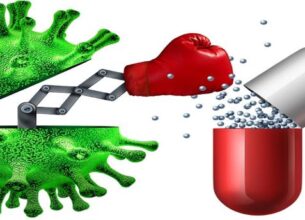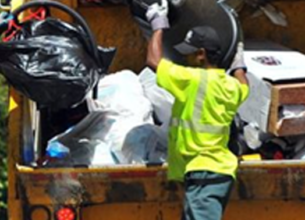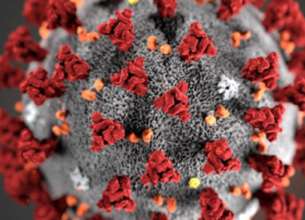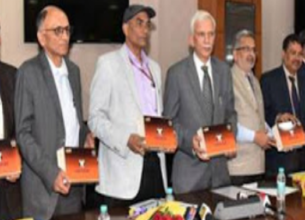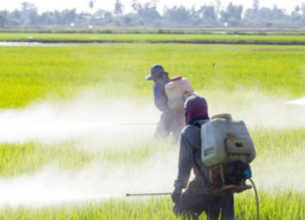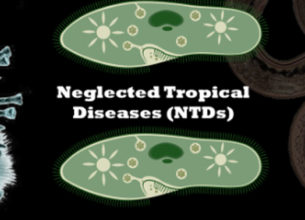THE BURDEN OF RABIES, AND THE SHORTAGE OF VACCINES
05, Sep 2019
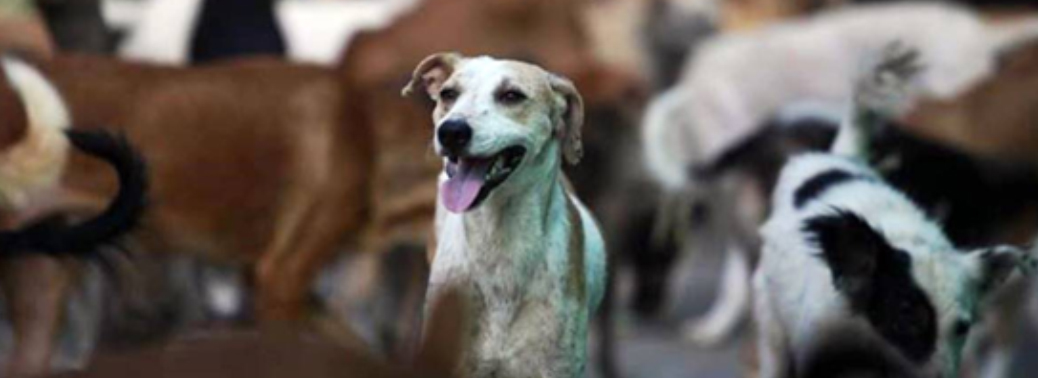
Prelims level : Science & Technology- Medicine and Pharmaceuticals, Health, Diseases
Mains level : GS-II- Issues relating to development and management of Social Sector or Services relating to Health, Education, Human Resources.
Context:
- According to World Health Organisation (WHO) figures, India bears over a third of the global burden of rabies, and accounts for 59.9% of deaths from the disease in Asia, and 35% globally.
- The shortage of antirabies vaccine in certain parts of the country has prompted the National Pharmaceutical Pricing Authority (NPPA) to step in.
Background:
- Taking cognisance of shortage of vaccine, NPPA has held repeated stakeholder consultations.
- Manufacturers and marketers have informed that lack of firm orders by State governments and late payments led to the shortage.
- Health Ministry which has advised State governments to issue quantity-based tenders and place longterm firm orders with specific quantity and supply schedule.
Rabies Disease:
- There is no cure for rabies, which is a viral disease.
- Transmitted from the saliva of a rabid animal to humans. It is fatal by the time of clinical onset.
- Symptoms include fever, pain, unexplained and unusual pricking or burning sensation at the wound site.
- The virus spreads to the central nervous system through the nerves, eventually leading to the inflammation of the brain, subsequently resulting in death.
- Even so, it is a 100% vaccine-preventable disease, when treatment is given immediately.
Burden of Rabies:
- In 99% of cases worldwide, the infection is transmitted through the bite of an infected dog.
- According to World Health Organisation (WHO) figures, India bears over a third of the global burden of rabies, and accounts for 59.9% of deaths from the disease in Asia, and 35% globally.
- Ninety-five per cent of the deaths associated with rabies occur in Asia and Africa; 80% of these are of people living in rural areas.
- The WHO says that the cost of post-exposure prophylaxis (PEP) — the regimen of human rabies immunoglobulin and anti-rabies vaccine that is administered on the day of the exposure and on subsequent days to prevent becoming infected — is the highest in Asia.
- Dog-mediated rabies has been eliminated from Western Europe, Canada, the United States, Japan, and several Latin American countries, according to the WHO.
- Australia and many Pacific Island nations have always been free from dog-mediated rabies.
Rabies Vaccine:
- Vaccination against rabies is used in two distinct situations:
- To Protect those who are at risk of exposure to rabies, i.e. preexposure vaccination;
- To Prevent the development of clinical rabies after exposure has occurred, usually following the bite of an animal suspected of having rabies, i.e. post-exposure prophylaxis.
Why is India always short of Rabies Vaccine?
- It’s not like India produces lesser number of doses than required — against an annual demand of 48 million ARV doses, the country produces 50 million.
- However, 30% of those vaccines — 15 million — are exported, leaving India with a shortfall of 13 million.
- Stray Dogs
- India has a population of 30 million stray dogs which cause 96% of the cases of rabies in humans — with 17.4 million cases of dog bites annually, leading to over 21,000 deaths due to rabies, the highest in the world, constituting 36% of the worldwide deaths due to the disease which stands at 59,000.
- According to WHO dogs contribute upto 99 per cent of all rabies transmitted to humans while one can develop the disease if bitten or scratched by by a rabid mammal too.
- Banning Imports
- Even as the government has been dithering on banning exports of ARV, it went ahead and banned imports of the vaccine from China last year after the company was found to have faked its records.
- Issue
- Dog bite cases usually show an uptick in the summer months as, due to the increasing heat, dogs salivate more since they don’t have sweat glands.
- The increased salivation causes a tingling sensation, which in turn irritates the canines — leading to an increased number of bites, especially if it’s unable to find a shady spot.
- There is only one manufacturer supplying anti-rabies vaccines, and at present they are being supplied only to central government hospitals. Due to excessive demand, the supply of the vaccines cannot be met
Curbing export of Rabbies Vaccine:
- Recently in July of 2019 Rabbies vaccine export was banned owing to acute shortage.
- The restriction on the export will be imposed under Section 26 B of the Drugs and Cosmetics (D&C) Act.
- The manufacturers will be allowed to export vaccine only after getting necessary permission from the health ministry,
Impact of Banning Export:
- The move is likely to affect companies like Serum Institute of India, Indian Immunologicals Limited, Human Biological, Zydus Cadila, and Bharat Biotech, which manufacture and export anti rabies vaccines.
Essential list:
- The government also plans to ask states to bring the vaccine under the list of essential medicines to ensure its availability in adequate quantity and assured quality.
National Pharmaceutical Pricing Authority (NPPA):
- National Pharmaceutical Pricing Authority (NPPA) was constituted vide Government of India Resolution.
- Attached office of the Department of Pharmaceuticals (DoP), Ministry of Chemicals & Fertilizers as an independent Regulator for pricing of drugs and to ensure availability and accessibility of medicines at affordable prices.



